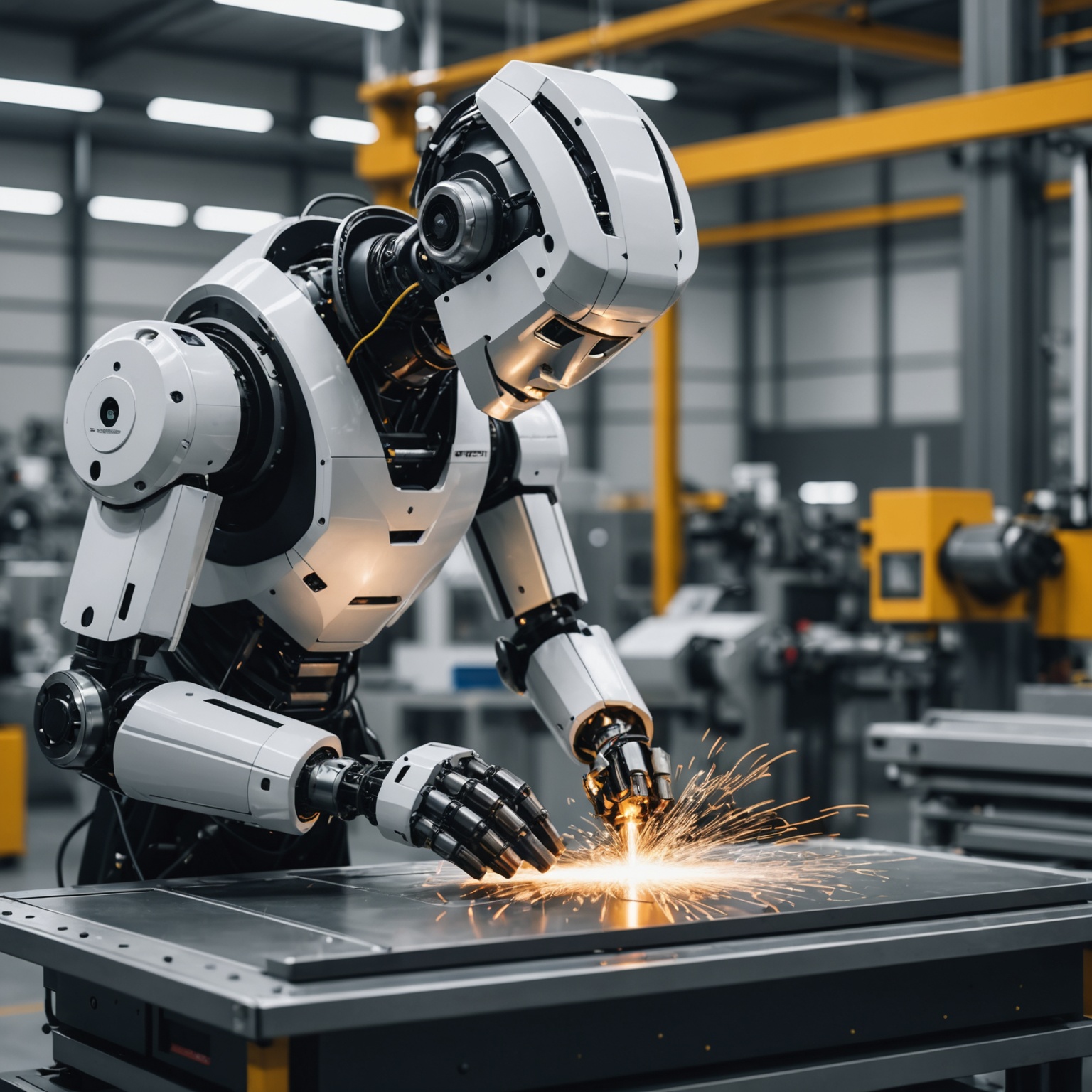How to use AI for automating quality control in manufacturing processes?

In today's competitive manufacturing industry, quality and efficiency are critical. Modern manufacturers face the challenge of producing high-quality products while minimizing production costs and time. One solution to this challenge is the integration of artificial intelligence (AI) in quality control. By leveraging AI, manufacturers can significantly improve product quality, reduce wastage, and ensure quality standards are consistently met.
The Role of AI in Quality Control
Artificial intelligence plays a pivotal role in transforming quality control within the manufacturing industry. Traditional inspection systems often rely on human intervention, which can lead to quality issues such as human error and inconsistency. AI-driven machine vision and machine learning technologies offer more reliable and real-time inspection capabilities.
A lire aussi : How can augmented reality be used to enhance remote medical consultations?
Enhancing Accuracy with Machine Vision
Machine vision systems powered by computer vision algorithms can identify defects and anomalies in products that human inspectors might overlook. These systems use high-resolution cameras and sophisticated image-processing software to detect quality deviations. By analyzing visual data in real time, machine vision systems can promptly flag defective items, ensuring that only quality products proceed to the next stage of the manufacturing process.
Leveraging Machine Learning for Predictive Maintenance
Machine learning algorithms can analyze vast amounts of data collected from various production processes. By identifying patterns and trends, these algorithms enable predictive maintenance, which helps manufacturers anticipate equipment failures before they occur. This not only reduces unplanned downtime but also ensures that machines operate at optimal efficiency.
A lire aussi : How to ensure data integrity in a decentralized ledger technology?
Implementing Deep Learning for Defect Detection
Deep learning is a subset of machine learning that excels in analyzing complex data. In quality assurance, deep learning models can be trained to recognize subtle defects that traditional methods might miss. For instance, in the textile industry, deep learning can detect minute inconsistencies in fabric patterns, ensuring that only the best products reach the consumer.
Benefits of AI-Driven Quality Control
AI-driven quality control offers numerous benefits that can significantly enhance manufacturing processes. By automating repetitive tasks and improving decision-making, AI helps manufacturers achieve higher quality standards and operational efficiency.
Improved Product Quality
AI ensures that product quality is maintained consistently. Automated inspection systems can perform detailed checks more quickly and accurately than human inspectors. This reduces the risk of defective products reaching the market, enhancing customer satisfaction and brand reputation.
Increased Efficiency and Reduced Costs
Automation in quality control streamlines production processes. AI systems can operate continuously without the need for breaks, leading to faster inspection times and higher throughput. This increased efficiency translates to lower labor costs and reduced wastage, ultimately improving the bottom line.
Real-Time Data Analysis and Decision Making
AI systems can analyze quality control data in real time, allowing manufacturers to make informed decisions promptly. This real-time analysis helps in identifying bottlenecks and optimizing production workflows. For instance, if a particular batch of products shows a high defect rate, AI can quickly pinpoint the issue and suggest corrective actions.
Challenges and Solutions in Implementing AI for Quality Control
While the benefits of AI in quality control are substantial, manufacturers may face challenges during implementation. Understanding these challenges and their solutions can help in successfully integrating AI into existing manufacturing processes.
Integrating AI with Existing Systems
One of the primary challenges is integrating AI with existing manufacturing infrastructure. This requires a thorough assessment of current systems and processes. Collaborating with AI specialists and investing in compatible technologies can ensure a seamless transition.
Data Quality and Management
AI systems rely heavily on high-quality data for accuracy. Manufacturers must ensure that data collected from production processes is clean, consistent, and comprehensive. Implementing robust data management practices and using advanced sensors can help maintain data integrity.
Training and Workforce Adaptation
Implementing AI in quality control requires training the workforce to understand and operate new technologies. Manufacturers should invest in training programs that equip employees with the necessary skills. Encouraging a culture of continuous learning can help the workforce adapt to technological advancements.
Future Trends in AI-Driven Quality Control
The future of AI in quality control is promising, with continuous advancements in machine learning, deep learning, and computer vision. These technologies will further enhance quality assurance practices, driving innovation and efficiency in the manufacturing industry.
Advanced Machine Vision Systems
Future machine vision systems will become even more sophisticated, with improved capabilities in defect detection and inspection. These systems will leverage multi-spectral imaging and 3D vision to provide detailed analyses of products.
Integration with IoT and Edge Computing
The integration of AI with the Internet of Things (IoT) and edge computing will enable more real-time data processing and analysis. This will allow manufacturers to monitor quality control metrics continuously and make immediate adjustments to production processes.
Enhanced Predictive Maintenance
Advancements in predictive maintenance will further reduce downtime and extend the lifespan of manufacturing equipment. AI algorithms will become more adept at predicting failures and suggesting maintenance schedules, ensuring uninterrupted production.
Integrating AI into quality control processes offers manufacturers a significant competitive advantage. By leveraging machine learning, deep learning, and computer vision, manufacturers can enhance product quality, increase efficiency, and reduce costs. Embracing these technologies will ensure that manufacturers remain at the forefront of the industry, consistently delivering high-quality products to the market.
AI-driven quality control not only helps in maintaining quality standards but also facilitates better decision making and real-time analysis. As AI technologies continue to evolve, the manufacturing industry can look forward to even more innovative solutions that will drive efficiency and quality to new heights.
